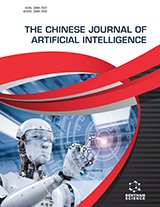Abstract
Background: The Particle Swarm Optimization (PSO) algorithm is amongst the utmost favourable optimization algorithms often employed in hybrid procedures by the researchers considering simplicity, smaller count of parameters involved, convergence speed, and capability of searching global optima. The PSO algorithm acquires memory, and the collaborative swarm interactions enhances the search procedure. The high exploitation ability of PSO, which intends to locate the best solution within a limited region of the search domain, gives PSO an edge over other optimization algorithms. Whereas, low exploration ability results in a lack of assurance of proper sampling of the search domain and thus enhances the chances of rejecting a domain containing high quality solutions. Perfect harmony between exploration and exploitation abilities in the course of selection of the best solution is needed. High exploitation capacity makes PSO trapped in local minima when its initial location is far off from the global minima.
Objectives: The intent of this study is to reform this drawback of PSO of getting trapped in local minima. To upgrade the potential of Particle Swarm Optimization (PSO) to exploit and prevent PSO from getting trapped in local minima, we require an algorithm with a positive acceptable exploration capacity.
Methods: We utilized the recently developed metaheuristic Grey Wolf Optimizer (GWO), emulating the seeking and hunting techniques of Grey wolves for this purpose. In our way, the GWO has been utilized to assist PSO in a manner to unite their strengths and lessen their weaknesses. The proposed hybrid has two driving parameters to adjust and assign the preference to PSO or GWO.
Results: To test the activity of the proposed hybrid, it has been examined in comparison with the PSO and GWO methods. For this, eleven benchmark functions involving different unimodal and multimodal functions have been taken. The PSO, GWO, and SGWO pseudo codes were coded in visual basic. All the functional parameters of PSO and GWO were chosen as: w = 0.7, c1 = c2 = 2, population size = 30, number of iterations = 30. Experiments were redone 25 times for each of the methods and for each benchmark function. The methods were compared with regard to their best and worst values besides their average values and standard deviations. The obtained results revealed that in terms of average values and standard deviations, our hybrid SGWO outperformed both PSO and GWO notably.
Conclusion: The outcomes of the experiments reveal that the proposed hybrid is better in comparison to both PSO and GWO in the searchability. Though the SGWO algorithm refines result quality, the computational complexity also gets elevated. Thus, lowering the computational complexity would be another issue of future work. Moreover, we will apply the proposed hybrid in the field of water quality estimation and prediction.
Keywords: Particle swarm optimizer (PSO), grey wolf optimizer (GWO), exploitation, exploration, swarmed grey wolf optimizer (SGWO), unimodal function.
Graphical Abstract
[http://dx.doi.org/10.1109/4235.585893]
[http://dx.doi.org/10.1007/s12065-013-0102-2]
[http://dx.doi.org/10.1016/j.swevo.2012.12.004]
[http://dx.doi.org/10.1016/j.ins.2010.07.013]
[http://dx.doi.org/10.1109/GCIS.2010.147]
[http://dx.doi.org/10.1016/j.amc.2006.07.025]
[http://dx.doi.org/10.1109/GRC.2009.5255079]
[http://dx.doi.org/10.1007/978-3-642-11842-5_73]
[http://dx.doi.org/10.1007/s11269-013-0362-8]
[http://dx.doi.org/10.1155/2014/215472] [PMID: 24688370]
[http://dx.doi.org/10.1002/cplx.21601]
[http://dx.doi.org/10.1007/s00366-015-0396-z]
[http://dx.doi.org/10.1016/j.amc.2015.11.001]
[http://dx.doi.org/10.1007/s00366-016-0438-1]
[http://dx.doi.org/10.1016/j.asoc.2017.07.023]
[http://dx.doi.org/10.1016/j.asej.2016.07.008]
[http://dx.doi.org/10.1007/s00366-016-0453-2]
[http://dx.doi.org/10.1016/j.eij.2018.01.002]
[http://dx.doi.org/10.1007/s00521-015-1962-4]
[http://dx.doi.org/10.1155/2017/2030489]
[http://dx.doi.org/10.1007/s00366-018-0668-5]
[http://dx.doi.org/10.1007/s00500-018-3310-y]
[http://dx.doi.org/10.1109/ICNN.1995.488968]
[http://dx.doi.org/10.1109/ICEC.1998.699146]
[http://dx.doi.org/10.1016/j.advengsoft.2013.12.007]
 13
13 1
1


















